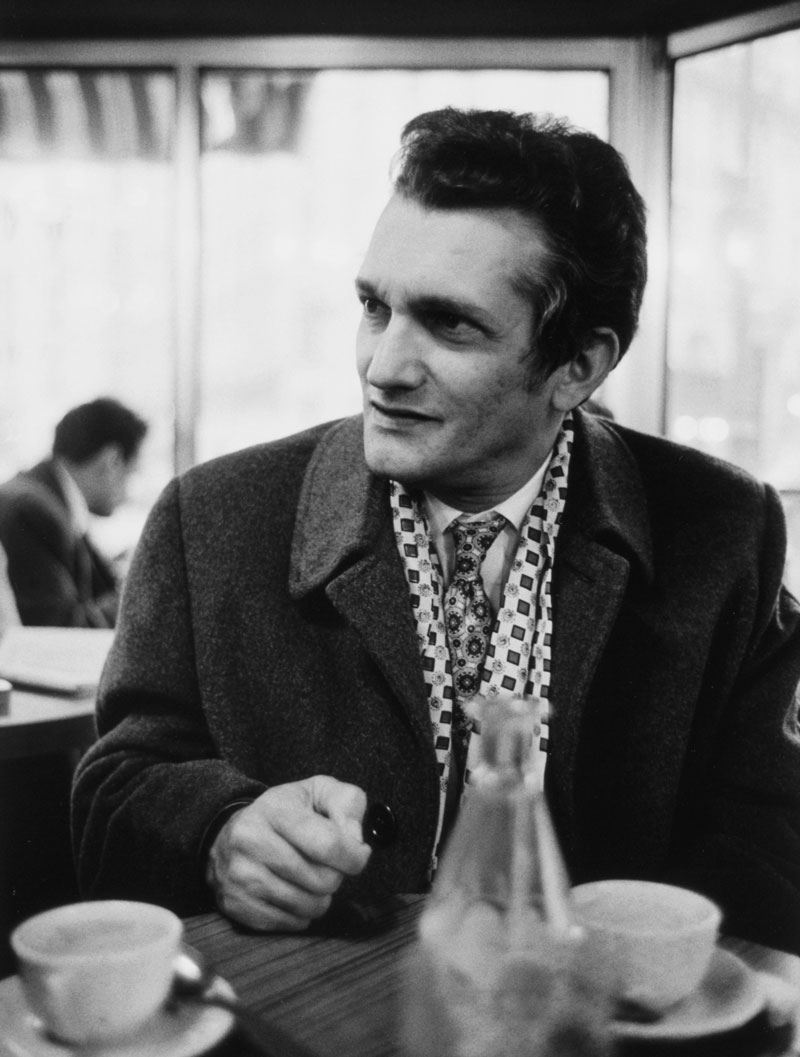
Alécio de Andrade / ADAGP Paris
Celso Furtado in Paris (1971)Alécio de Andrade / ADAGP ParisIn his autobiographical book, A fantasia organizada (Organized fantasy; Paz e Terra, 1985), economist Celso Furtado (1920–2004) relates a curious episode back in 1951. The first results from a study he codeveloped with Raúl Prebisch (1901–1986) had just been published in the journal Revista Brasileira de Economia, in a paper titled “Interpretação do processo de desenvolvimento econômico” (Interpretation of economic development processes), and were about to be presented at a conference in Rio de Janeiro, when the eminent Canadian economist Jacob Viner (1892–1970) decided to travel to Brazil. He made no secret of the purpose of his visit: to debunk the concept of underdevelopment that had been introduced by the two Latin American economists. Furtado recalls in his book how Viner declared during the conference that, “It makes no sense to refer to a country as underdeveloped.”
But in spite of Viner, the ensuing decades saw the expression become mainstream in scientific theory, public policy, and party platforms all around the world. Furtado’s name became strongly associated with the concept, which he often used in the titles of his books, such as Desenvolvimento e subdesenvolvimento (Development and underdevelopment; Fundo de Cultura, 1961), Obstacles to development in Latin America (1966), and Teoria e política do desenvolvimento econômico (Economic development: Theory and policy; Editora Nacional, 1967).
“Furtado was part of a post-World War II generation that questioned traditional Western classifications in economics and social sciences,” says Carlos Mallorquín, a professor at the Center for Development Studies at the Autonomous University of Zacatecas, in Mexico. “Furtado realized that if social science abstracts questions from asymmetric power relations between countries, regions, classes, and other agents that make up the economic fabric in the periphery, it is at best irrelevant.” Mallorquín notes how the Brazilian economist never gave his books titles such as Development theory or Why some countries achieve development. “He emphasized policy, as in his classic book, Teoria e política do desenvolvimento econômico (Economic development: Theory and policy),” he says.
Born in the town of Pombal, in Brazil’s northeastern state of Paraíba, Furtado was among Brazil’s most widely read, translated, and influential economists of the previous century. After earning a degree in law at the University of Brazil, now the Federal University of Rio de Janeiro (UFRJ), he obtained his doctoral degree at the University of Paris (Sorbonne), France, in 1948, with a thesis about Brazilian colonial economics. The next year, as head of the Economic Development Division of the Economic Commission for Latin America and the Caribbean (ECLAC), he and Prebisch codeveloped the theory of underdevelopment, which dealt with relationships between the center and periphery of the world economy.
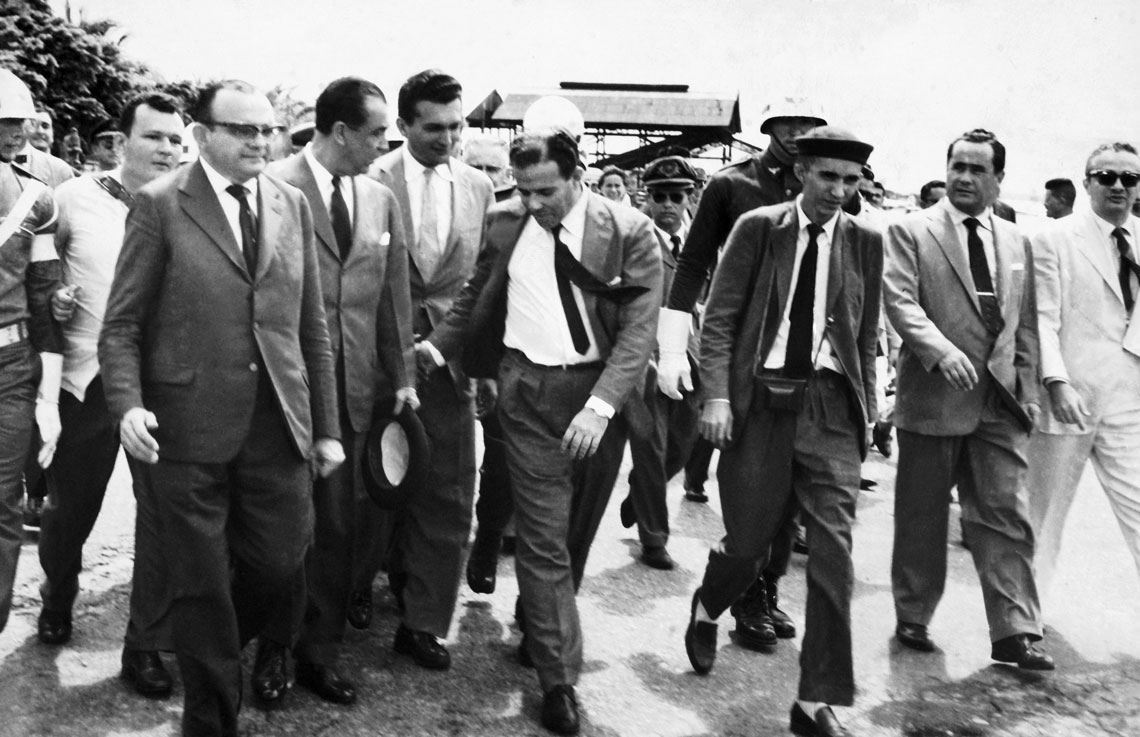
National Archives
In a photo taken in 1960 (left to right): Ceará Governor Parsifal Barroso, president Juscelino Kubitschek, Furtado, and João GoulartNational ArchivesBack in Brazil, he chaired a joint research group created by ECLAC and the Brazilian Economic Development Bank (BNDE, then without the “S” for “Social”), whose reports formed the backbone for president Juscelino Kubitschek’s (1902–1976) ambitious development program, Plano de Metas, in 1955. During his tenure as the first director of the Northeast Development Agency (SUDENE), from 1959 to 1964, he served as Planning Minister under president João Goulart (1919–1976), developing an economic stabilization plan in 1963 which, however, failed to garner congressional support and was abruptly abandoned. Following his exile in France during the military dictatorship (1964–1985), he served as Minister of Culture during the José Sarney administration between 1986 and 1988, creating the first cultural tax incentive framework in Brazil (“Lei Sarney”). He was married twice: first to the Argentine chemist Lucia Piave Tosi, with whom he had two children—economist André Tosi Furtado and physicist Mario Tosi Furtado; and later to journalist Rosa Freire d’Aguiar, in 1978.
“Furtado was a pioneer,” says Deepak Nayyar, a professor of economics at Jawaharlal Nehru University in New Delhi, India. “Structuralism was highly influential in the 1960s and 1970s. Its central premise was that underdevelopment and development could not be analyzed without situating economies within their political and social context, in which history plays an important role.” The structuralist approach, explains Nayyar, places an emphasis on nations’ colonial past, agrarian structures, deindustrialization, economic inequalities, social stratification, and political systems. “Furtado emphasized the importance of institutions, the critical role of government, the unequal international division of labor, and the nature of global capitalism,” he says.
The concept of underdevelopment has since lost favor among economists, being superseded by expressions such as “developing countries” or “emerging markets.” In economics programs, most university students are exposed to Furtado’s work through one book in particular, The Economic Growth of Brazil: A Survey from Colonial to Modern Times. It was this book, says Nayyar, that introduced him to the Brazilian’s work while a student at the University of Delhi in the 1960s.
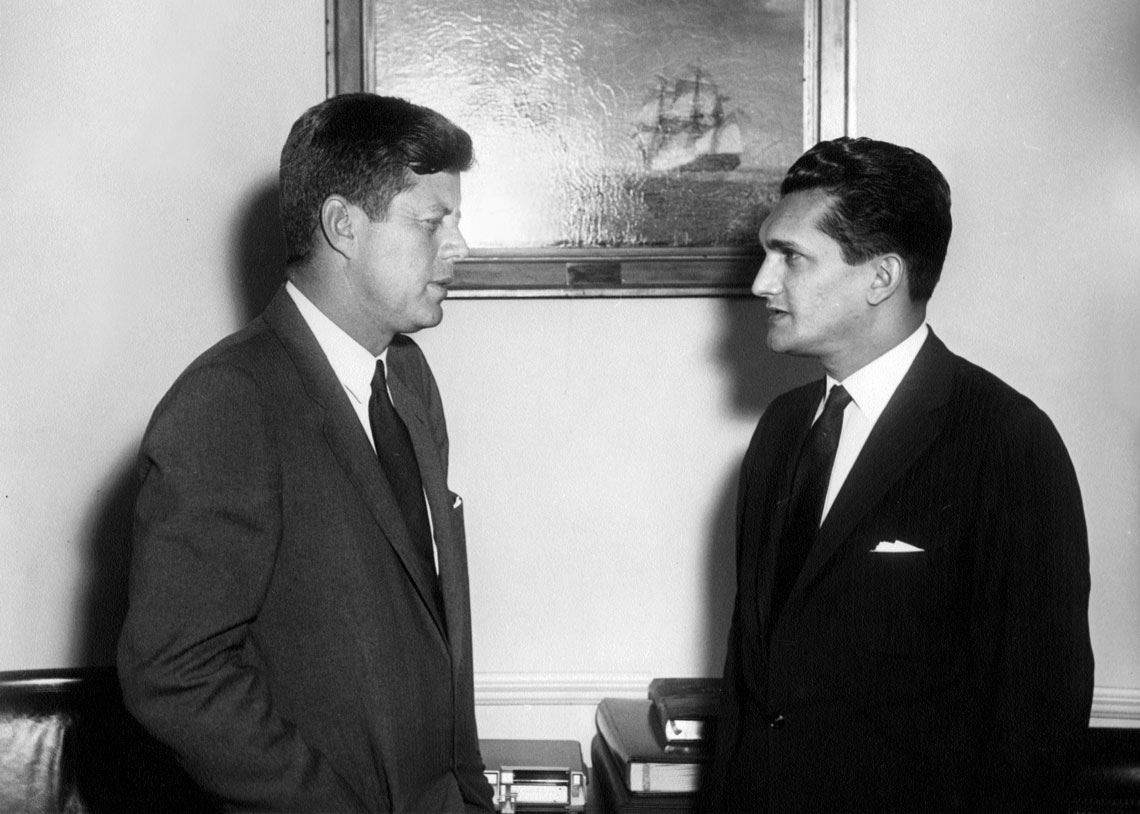
White House / John F. Kennedy Presidential Library and Museum
In July 1961, with US president John F. KennedyWhite House / John F. Kennedy Presidential Library and Museum“Because economics has now become more mathematical, he is now seen more as a historian,” says Marcos Costa Lima, a professor of International Relations at the Federal University of Pernambuco (UFPE). For Mallorquín, neoclassical economics regained its central position after being “locked out by structuralist thinking.”
That is not to say his work has faded entirely into obscurity. The influence of his books is evident in fields extending beyond economics. Furtado explored multiple fields of knowledge as a thinker, decades before graduate programs encouraged research from multiple perspectives.
“He ventured beyond the limited domains of his field. As his work evolved, it became increasingly holistic in its perception and articulation of social processes,” analyzes Costa Lima.
His approach to development—the major subject around which his works orbited—was never confined to economic development only. As economist Ricardo Bielschowsky of UFRJ aptly put it, Furtado’s work was like a building with a foundation and three floors. The foundation is the historical-structural method inherited from Prebisch and ECLAC, but with a greater historical footing.
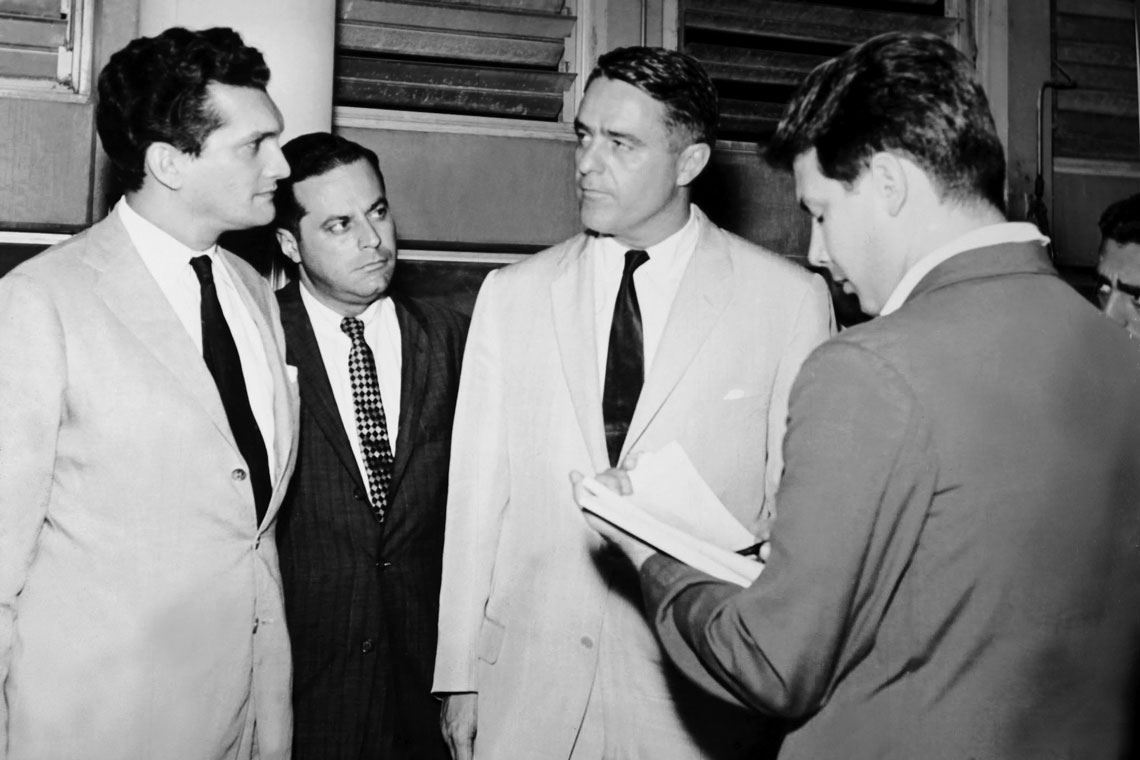
Archive
Furtado with Robert Sargent Shriver, director of the US Peace CorpsArchiveThe first floor is his analysis of underdevelopment, for which he is better known and—says Bielschowsky—where he demonstrates greatest analytical rigor. The second floor is socioeconomic and sociopolitical, reflecting his own experience in government. The third and final floor is culture, which gained increasing prominence in his work as the subject of development became exhausted.
“Celso was an advocate for social progress, for which material progress is obviously necessary, but not sufficient. Hence the importance of culture and cultural thought,” summarizes Fernando de Mattos, a professor at the School of Economics at Fluminense Federal University (UFF). Industrialization was subordinate to social progress and catalyzed by technology, on which Furtado also placed great emphasis.
Cesar Bolaño, a professor in the Department of Economics at the Federal University of Sergipe (UFS), says Furtado’s cultural writings led him to conceive of a political economy of communications and culture that is broader than in the conventional approach to cultural phenomena. In his book O conceito de cultura em Celso Furtado (The concept of culture in Celso Furtado’s work; EDUFBA, 2015), Bolaño shows that Furtado was influenced by authors in the field of anthropology, whose works convinced him that achieving development was more than a matter of reaching the consumption levels of wealthy nations. “His central concern was not that of creating jobs and income through culture. Rather, he wanted to safeguard the cultural autonomy of Brazil’s development program,” he says.
Bolaño illustrates the difference in perspective using tax incentive laws as an example. “Lei Sarney, Furtado’s brainchild, was designed to create the conditions for creativity to flourish. As he described it, the goal was for the butcher down the street to finance the local theater group. Subsequent laws, on the other hand, were more geared to financing large productions,” he notes. One exception, says Bolaño, was “Pontos de Cultura,” a cultural collectives program created by singer and musician Gilberto Gil during his term as Minister of Culture between 2003 and 2008.
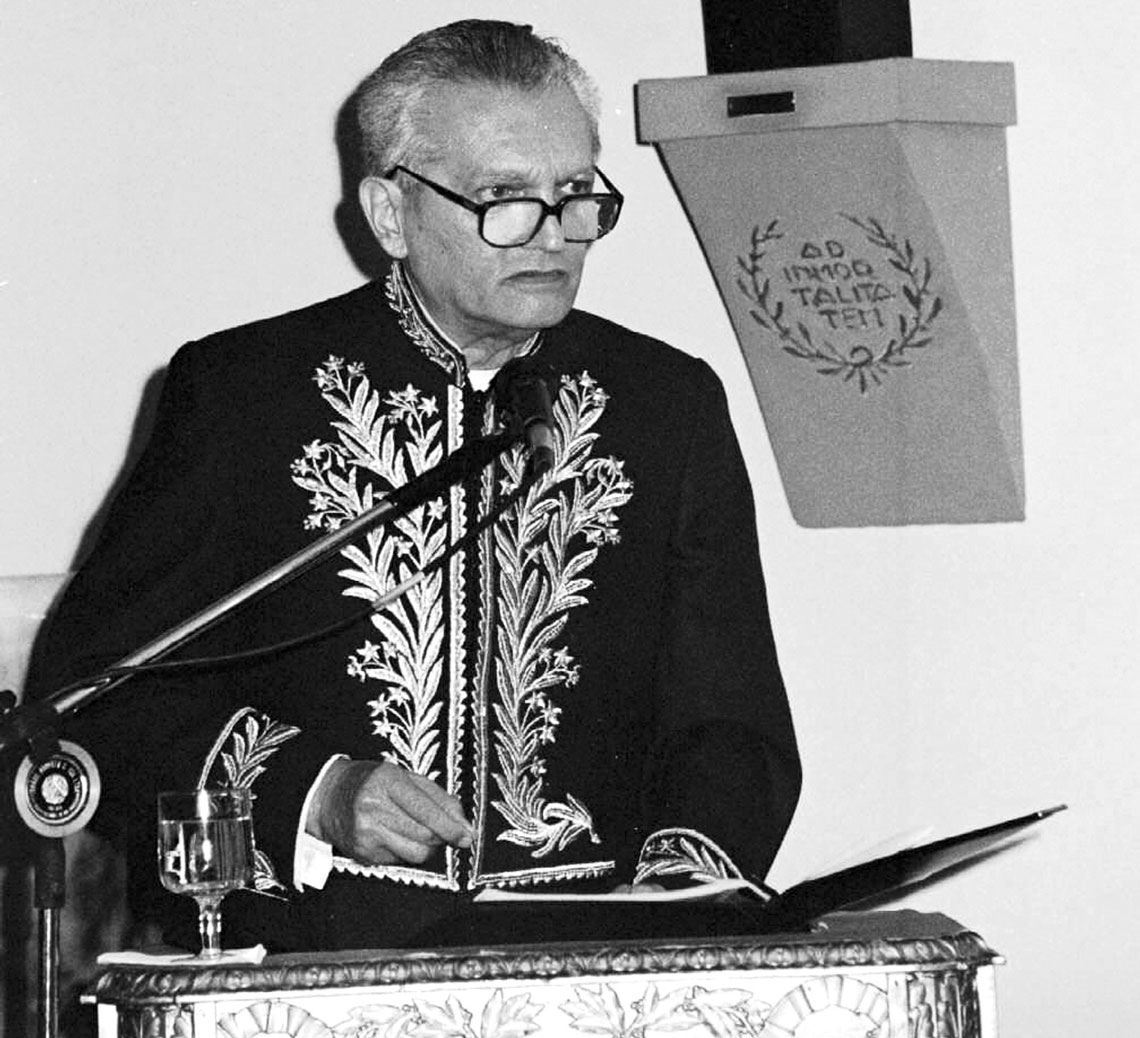
Publius Virgilius / Folhapress
October 31, 1997, during his inauguration at the Brazilian Academy of LettersPublius Virgilius / Folhapress“Furtado can be described in many ways: as an interpreter of Brazil’s formation; a historian of Brazilian and Latin American economic development; an underdevelopment theorist; a scholar of regional issues; a voice about the globalization of capital and possibilities in the periphery; or as a thinker of democracy,” says Gilberto Bercovici a professor of economic law at the University of São Paulo (USP) and founder of the research group “Law and Underdevelopment: the Furtadian Challenge.”
“His works are assigned as textbooks in programs on economic law, which explore the organization of economies, planning, and industrial and agricultural policy. Economic law governs how the economic process is structured,” explains Bercovici. “Jurist Fabio Konder Comparato describes economic law as a tool for shaping the framework of the economic system. This was precisely Furtado’s aim,” he says.
Costa Lima laments Furtado’s lack of recognition as a thinker in international relations, “although he dealt with the very same concepts as other more widely read authors. Celso Furtado ventured into the field of international policy to expand the scope of issues being addressed,” he notes, “an endeavor associated with post-colonial thinking.” Costa Lima points to two aspects in particular that marked Furtado’s work: his realization that, in pursuing development, peripheral nations could not simply attempt to reproduce the development patterns of central nations; and his advocacy for closer relations among underdeveloped countries, or “South-South” relations.
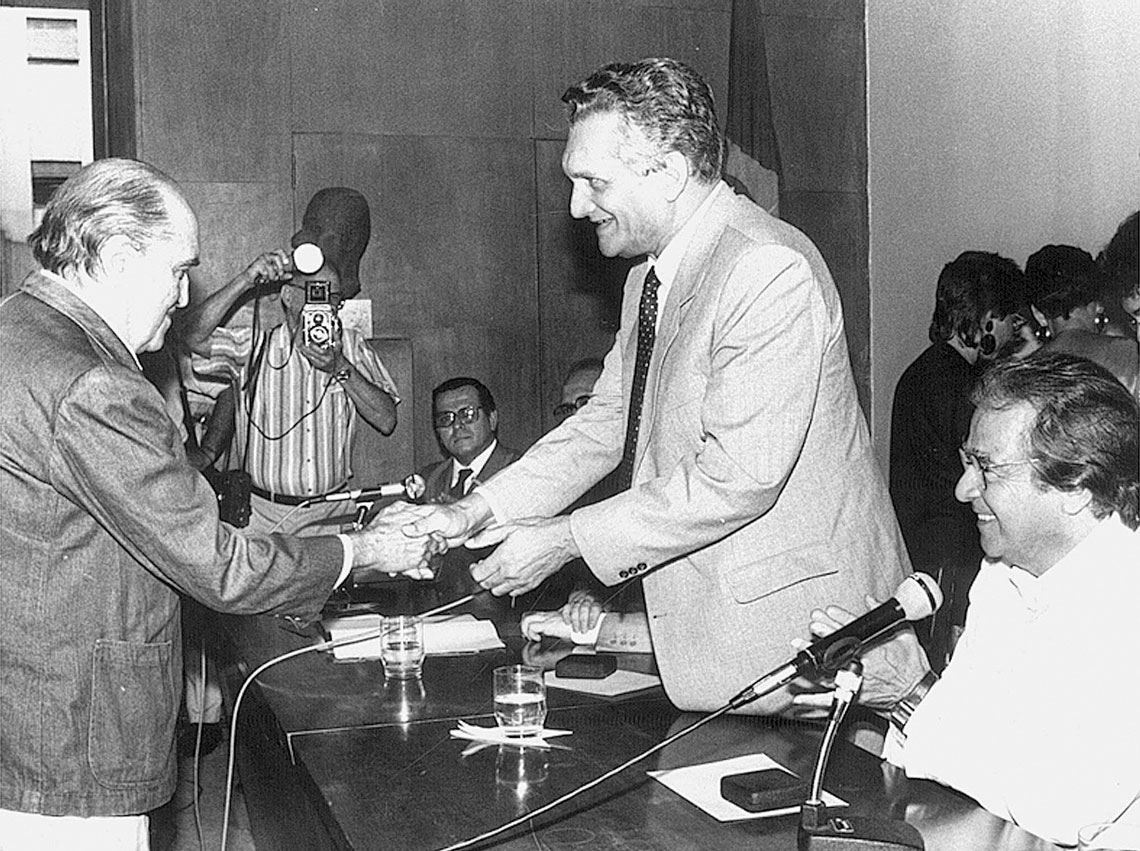
Cícero Pr / Folhapress
Celso Furtado shaking hands with architect Oscar Niemeyer at a conference in 1987. Seated at the table is anthropologist Darcy RibeiroCícero Pr / FolhapressIn 1974, Furtado launched Economic Development: A Myth, a book that explored what was then an unusual topic among economists—the environment. He would later explain that he became convinced of the importance of ecology in the 1960s during his tenure as director at SUDENE. There, he realized that indigenous agriculture helped to protect rainforests in a way that modern mechanized farming did not. In their article, “As ideias de Celso Furtado sobre a questão ambiental” (Celso Furtado and the environmental question),” economists Renato Nataniel Wasques, Walter Luiz dos Santos Júnior, and Danilo Duarte Brandão note that the environmental issues Furtado raised and the approach he used in his book would later form the cornerstone of the modern concept of sustainable development.
Besides underdevelopment, the other major concept Furtado advanced is the distinction between the center and periphery of the global economy, one of the pillars of the approach to economics he developed at ECLAC with Prebisch. At the “center” or “core” are wealthy nations that master advanced technologies and produce goods with increasing returns to scale—in other words, with revenues outgrowing the cost of inputs. At the periphery are countries specializing in low-technology products which, conversely, have decreasing returns to scale.
Today, the center-periphery model has fallen into disuse among economists. But it has resurfaced elsewhere, says Paulo Gala, of the School of Economics at Fundação Getulio Vargas (FGV) in São Paulo. He cites, for example, the work of 2008 Nobel prize winner Paul Krugman in the area of economic geography. Krugman shows how a core-and-periphery structure emerges naturally in economies in which there are different goods, some with increasing and others with decreasing returns to scale. “Krugman made a formal leap in our understanding of world trade, in a paper permeated by the idea of a center and a periphery,” he says.
Gala also points to more recent research in which physicists and economists specializing in complexity—such as Chilean physicist Cesar Hidalg and Hungarian-American physicist Albert-László Barabasi—came to a similar conclusion in separate studies on international trade. “In complex networks, a core-periphery structure occurs naturally. Any network has a core and a periphery: the core has the most connected nodes, while periphery nodes have few connections,” he explains.
Gala notes how each of these different schools arrived at a center-periphery model through different routes. Furtado and Prebisch used a historical and documentary approach. Krugman is a pure microeconomics theorist who uses abstract models. Complexity theorists, in turn, took a strictly empirical route, analyzing large volumes of data on world trade. “They all came to the same conclusion, either empirically or formally, that the structure of world trade forms a center-and-periphery pattern,” he says. “This vindicates the Latin American structuralists’ claim that poorer countries could not achieve development within a pattern emanating from wealthy nations,” he concludes.
Scientific articles
COSTA LIMA, Marcos. A dimensão internacional da obra de Celso Furtado. Revista de Ciências Sociais. Fortaleza, Vol. 51, no. 1, Mar./June, 2020, pp. 45–73.
WASQUES, Renato Nataniel; SANTOS JÚNIOR, Walter Luiz dos; BRANDÃO, Danilo Duarte. “As ideias de Celso Furtado sobre a questão ambiental”. Leituras de Economia Política, Campinas, (28), pp. 41–58, Jan./June 2019.[/bibliografia
[bibliografia]Livros
Araújo, Victor Leonardo e Mattos, Fernando Augusto M. (organizers). A Economia Brasileira de Getúlio a Dilma: Novas Interpretações. São Paulo: Hucitec, in preprint.
Bolaño, Cesar. O Conceito de Cultura em Celso Furtado. Salvador: Editora UFBA, 2015.
Gala, Paulo. Complexidade Econômica. Rio de Janeiro: Contraponto, 2017.